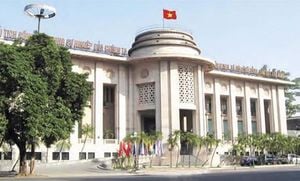The literary scene in South Korea is currently embroiled in controversy, as accusations of bias and unfair practices surrounding the prestigious South Korean Literary Award have emerged. This situation has not only sparked heated debate among literary circles but also raised concerns about the integrity of award processes intended to celebrate literary excellence.
At the heart of the controversy are claims from notable authors and critics, including respected writer Han Kang, who stated, "There needs to be more transparency and fairness in how these awards are judged." Han's comments reflect a growing frustration among writers who believe the award process disproportionately favors certain authors over others, often based on subjective criteria rather than merit.
Fellow novelist Kim Young-ha also shared similar sentiments, emphasizing the lack of diversity within the selection panels. He commented, "Many talented writers feel overlooked simply because they do not fit the narrow criteria often used by judges." This insistence on broadening the definition of what constitutes worthy literature is pivotal in addressing systemic biases.
These accusations have intensified as authors begin to voice their dissent more publicly, predominantly through social media platforms where literary trends often gain traction. During this year’s award nomination season, authors have used their platforms not only to discuss their personal experiences but to advocate for widespread reforms within the current award system. The repeated call for fairness and inclusivity signals some dissatisfaction growing among younger writers and established figures alike.
The Korean Literary Association, the body governing the award, has found itself under scrutiny as questions about its selection criteria and decision-making practices have come to the forefront. Critics argue the need for greater transparency, which has prompted the association to review its protocols. While specific changes have yet to be publicly announced, there have been indications from the association about the desire to open dialogue about reforming the process to make it more equitable.
This situation exemplifies broader issues around the representation and opportunity within South Korea's literary community, reflecting many of the same arguments made within other artistic fields. Authors are demanding recognition not just for their literary accomplishments but also for their diverse backgrounds and experiences. They assert this inclusion is not simply beneficial but necessary for the vitality of the literary arts.
The reflection on these issues has larger implications beyond this year's awards. It opens up conversations about how literature is celebrated, who gets celebrated, and whether or not cultural awards can adapt to changing societal values. Addressing these concerns may significantly affect how awards are approached not only locally but also potentially influence international perceptions of South Korean literature.
With authors urging for these conversations to continue, the hope is to not only improve the standard of awards but to create opportunities for all voices to be heard. By fostering inclusivity within award selection processes, the literary community can cultivate more diverse storytelling and appreciation for various narratives.
For now, the spotlight remains on the contentious debate surrounding the South Korean Literary Award. Much will depend on the steps the Korean Literary Association takes to address these concerns moving forward. Will the changes satisfy the calls for reform, or will they lead to more divided opinions within the literary community?
Only time will tell if these adjustments will make the awards more equitable and representative of the rich diversity present within South Korea's literary fabric, but these discussions are undoubtedly necessary to pave the way for future generations of writers.



